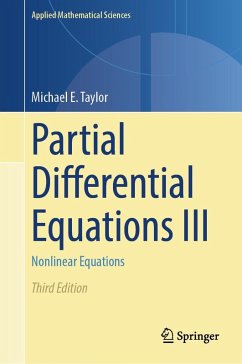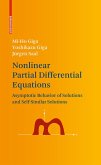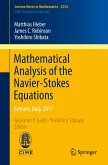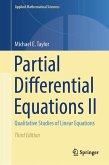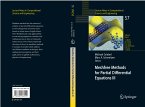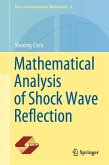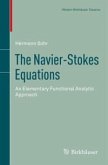The third of three volumes on partial differential equations, this is devoted to nonlinear PDE. It treats a number of equations of classical continuum mechanics, including relativistic versions, as well as various equations arising in differential geometry, such as in the study of minimal surfaces, isometric imbedding, conformal deformation, harmonic maps, and prescribed Gauss curvature. In addition, some nonlinear diffusion problems are studied. It also introduces such analytical tools as the theory of L^p Sobolev spaces, Holder spaces, Hardy spaces, and Morrey spaces, and also a development of Calderon-Zygmund theory and paradifferential operator calculus. The book is targeted at graduate students in mathematics and at professional mathematicians with an interest in partial differential equations, mathematical physics, differential geometry, harmonic analysis, and complex analysis.
Michael E. Taylor is a Professor of Mathematics at the University of North Carolina, Chapel Hill, NC.
Review of first edition: "These volumes will be read by several generations of readers eager to learn the modern theory of partial differential equations of mathematical physics and the analysis in which this theory is rooted."
(Peter Lax, SIAM review, June 1998)
The third edition further expands the material by incorporating new theoremsand applications throughout the book, and by deepening connections and relating concepts across chapters. It includes new sections on rigid body motion, on probabilistic results related to random walks, on aspects of operator theory related to quantum mechanics, on overdetermined systems, and on the Euler equation for incompressible fluids. The appendices have also been updated with additional results, ranging from weak convergence of measures to the curvature of Kahler manifolds.
Michael E. Taylor is a Professor of Mathematics at the University of North Carolina, Chapel Hill, NC.
Review of first edition: "These volumes will be read by several generations of readers eager to learn the modern theory of partial differential equations of mathematical physics and the analysis in which this theory is rooted."
(Peter Lax, SIAM review, June 1998)
Dieser Download kann aus rechtlichen Gründen nur mit Rechnungsadresse in A, B, BG, CY, CZ, D, DK, EW, E, FIN, F, GR, HR, H, IRL, I, LT, L, LR, M, NL, PL, P, R, S, SLO, SK ausgeliefert werden.
From the reviews:
"These volumes will be read by several generations of readers eager to learn the modern theory of partial differential equations of mathematical physics and the analysis in which this theory is rooted."(SIAM Review, June 1998)
From the reviews of the second edition:
"This substantial three-volume work is an upgraded version of the comprehensive qualitative analysis of partial differential equations presented in the earlier edition. ... Graduate students ... will find these three volumes to be not just a fine and rigorous treatment of the subject, but also a source of inspiration to apply their knowledge and ability to the solution of other challenging problems in the field of partial differential equations. ... an excellent text for all devotees of the charming and thought-provoking byways of higher mathematics." (Christian Constanda, The Mathematical Association of America, July, 2011)
"These volumes will be read by several generations of readers eager to learn the modern theory of partial differential equations of mathematical physics and the analysis in which this theory is rooted."(SIAM Review, June 1998)
From the reviews of the second edition:
"This substantial three-volume work is an upgraded version of the comprehensive qualitative analysis of partial differential equations presented in the earlier edition. ... Graduate students ... will find these three volumes to be not just a fine and rigorous treatment of the subject, but also a source of inspiration to apply their knowledge and ability to the solution of other challenging problems in the field of partial differential equations. ... an excellent text for all devotees of the charming and thought-provoking byways of higher mathematics." (Christian Constanda, The Mathematical Association of America, July, 2011)

